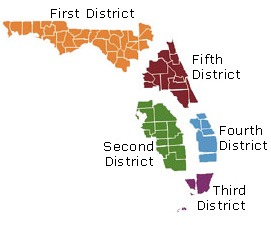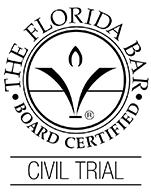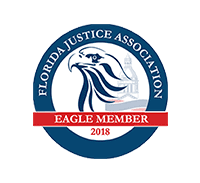 In a recent decision handed down by Florida’s Fifth District Court of Appeal [1], the Sunshine State’s longstanding “dangerous instrumentality doctrine” was applied to a motor vehicle crash that occurred, not in Florida, but in South Carolina. The dangerous instrumentality doctrine dictates that the owner of the vehicle can be held liable for the negligence of a driver who has the owner’s permission to drive the vehicle when that vehicle is involved in an automobile accident.The case, Ward v. Morlock, 2017 Fla. App. LEXIS 6362, 42 Fla. L. Weekly D 1038, 2017 WL 1788020 (Fla. Dist. Ct. App. 5th Dist. May 5, 2017), arose from a two-vehicle accident at an intersection in Mt. Pleasant, South Carolina. The injured party was a Florida resident and the at-fault driver a Pennsylvania resident. However, the owner of the vehicle driven by the at-fault driver was also a Florida resident. Unlike Florida’s dangerous instrumentality doctrine, South Carolina law holds that mere ownership of a vehicle is, without more, insufficient to establish the owner’s liability for the negligence of the driver. The owner-defendant argued that South Carolina law applied and since the plaintiff did not show evidence that the owner-defendant negligently entrusted the vehicle to the at-fault driver, he could not be held liable for plaintiff’s injuries. The trial court entered judgment in favor of the owner-defendant, and the plaintiff appealed.
In a recent decision handed down by Florida’s Fifth District Court of Appeal [1], the Sunshine State’s longstanding “dangerous instrumentality doctrine” was applied to a motor vehicle crash that occurred, not in Florida, but in South Carolina. The dangerous instrumentality doctrine dictates that the owner of the vehicle can be held liable for the negligence of a driver who has the owner’s permission to drive the vehicle when that vehicle is involved in an automobile accident.The case, Ward v. Morlock, 2017 Fla. App. LEXIS 6362, 42 Fla. L. Weekly D 1038, 2017 WL 1788020 (Fla. Dist. Ct. App. 5th Dist. May 5, 2017), arose from a two-vehicle accident at an intersection in Mt. Pleasant, South Carolina. The injured party was a Florida resident and the at-fault driver a Pennsylvania resident. However, the owner of the vehicle driven by the at-fault driver was also a Florida resident. Unlike Florida’s dangerous instrumentality doctrine, South Carolina law holds that mere ownership of a vehicle is, without more, insufficient to establish the owner’s liability for the negligence of the driver. The owner-defendant argued that South Carolina law applied and since the plaintiff did not show evidence that the owner-defendant negligently entrusted the vehicle to the at-fault driver, he could not be held liable for plaintiff’s injuries. The trial court entered judgment in favor of the owner-defendant, and the plaintiff appealed.
The Fifth District Court of Appeal overturned the lower court’s ruling finding that the accident while occurring in South Carolina, was governed by the Florida dangerous instrumentality doctrine. In doing so, the Court noted the following:
- The owner is a Florida resident, and the vehicle that the at-fault driver allegedly operated negligently was both registered and insured in Florida. As such, there is a “reasonable relationship” between the owner and Florida; and
- The injured driver also a Florida resident. Applying Florida law on the issue of liability is consistent with the policy behind its dangerous instrumentality doctrine; that is, to protect plaintiffs from impecunious drivers by imposing liability on the owners of the vehicles; and
- The at-fault driver, who had not been sued or otherwise named as a party in the lawsuit, is a resident of Pennsylvania. Florida’s manifest interest in both protecting its residents and holding its residents responsible under its dangerous instrumentality doctrine far outweighs any interest that South Carolina may have in the application of its laws in this case, where neither driver nor owner resides in South Carolina.
Which laws apply to an accident are not always cut-and-dry. Contact an attorney so that you can be informed of your rights when dealing with injuries from a motor vehicle accident.
[1] Covering Orange and Osceola (Ninth Circuit); Volusia, Flagler, Putnam and St. Johns (Seventh Circuit); Lake, Marion, Sumter, Citrus and Hernando (Fifth Circuit); and Brevard and Seminole (18th Circuit)


![cftla-member[2]](https://www.1800askdave.com/wp-content/uploads/2022/03/cftla-member2.png)
![cftla-member[3]](https://www.1800askdave.com/wp-content/uploads/2022/03/cftla-member3.png)










